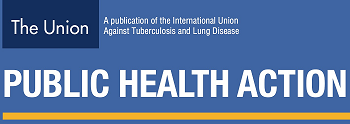
The Structured Operational Research and Training Initiative for public health programmes
Keywords: Médecins Sans Frontières; SORT IT; The Union; WHO, TDR; capacity building; operational research
Document Type: Review Article
Affiliations: 1: Special Programme for Research and Training in Tropical Diseases, World Health Organization, Geneva, Switzerland, Bute Medical School, University of St Andrews, Fife, Scotland, UK 2: International Union Against Tuberculosis and Lung Disease (The Union), Paris, France, Department of Infectious and Tropical Diseases, London School of Hygiene & Tropical Medicine, London, UK 3: Médecins Sans Frontières – Operational Centre Brussels, Medical Department, Operational Research Unit (LuxOR), MSF-Luxembourg Luxembourg 4: International Union Against Tuberculosis and Lung Disease (The Union), Paris, France, School of Population Health, The University of Auckland, New Zealand 5: International Union Against Tuberculosis and Lung Disease (The Union), Paris, France, Center for International Health, University of Bergen, Bergen, Norway 6: International Union Against Tuberculosis and Lung Disease (The Union), Paris, France 7: International Union Against Tuberculosis and Lung Disease (The Union), Paris, France, The Union South-East Asia Regional Office, New Delhi, India 8: Special Programme for Research and Training in Tropical Diseases, World Health Organization, Geneva, Switzerland
Publication date: 21 June 2014
Public Health Action (PHA), The Union's quarterly Open Access journal, welcomes the submission of articles on operational research. It publishes high-quality scientific research on health services, providing new knowledge on how to improve access, equity, quality and efficiency of health systems and services.
The Editors will consider any manuscript reporting original research on quality improvements, cost-benefit analysis, legislation, training and capacity building, with a focus on all relevant areas of public health (e.g. infection control, nutrition, TB, HIV, vaccines, smoking, COVID-19, microbial resistance, outbreaks etc).
- Editorial Board
- Information for Authors
- International Journal of Tuberculosis and Lung Disease
- Public Health Action
- Ingenta Connect is not responsible for the content or availability of external websites
- Access Key
- Free content
- Partial Free content
- New content
- Open access content
- Partial Open access content
- Subscribed content
- Partial Subscribed content
- Free trial content